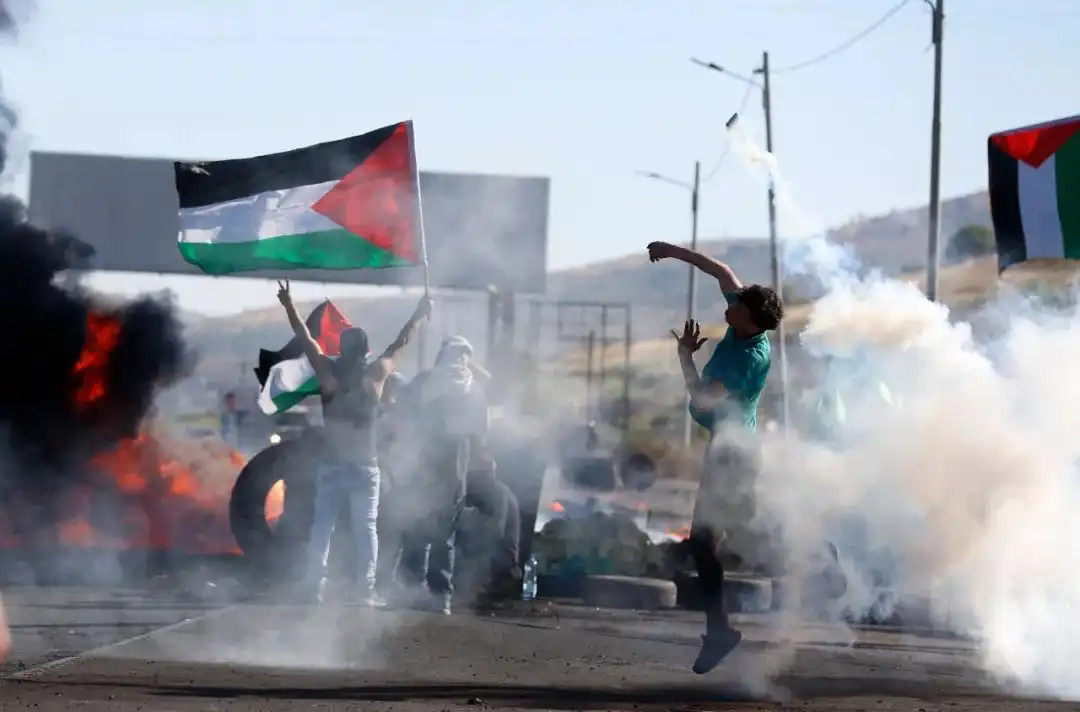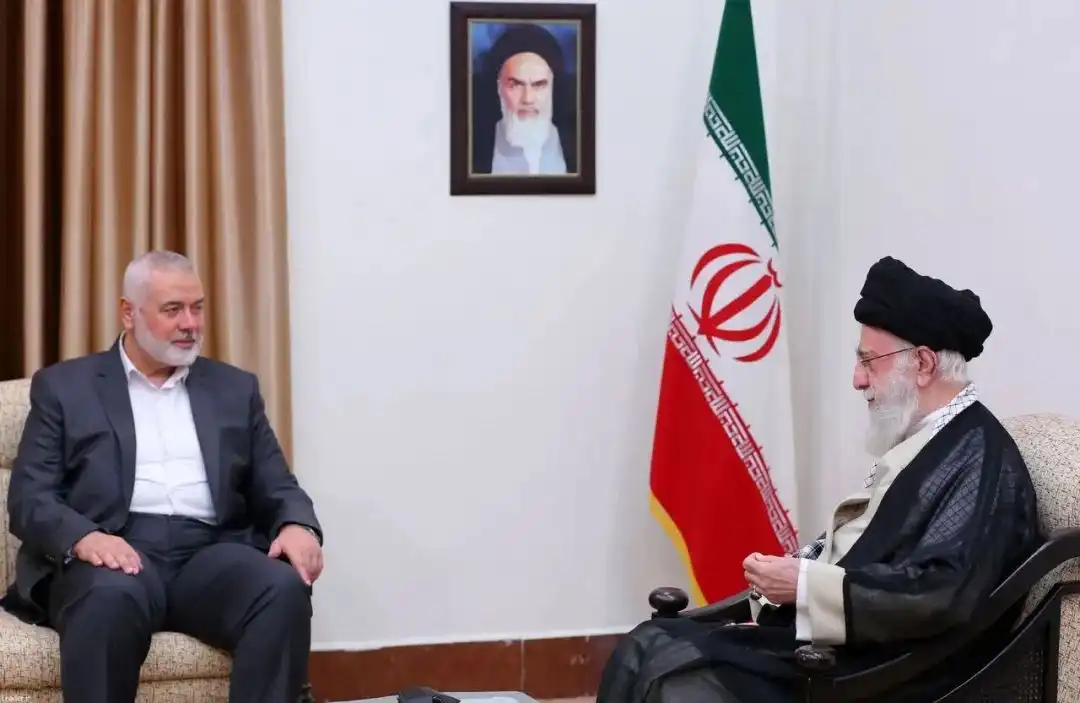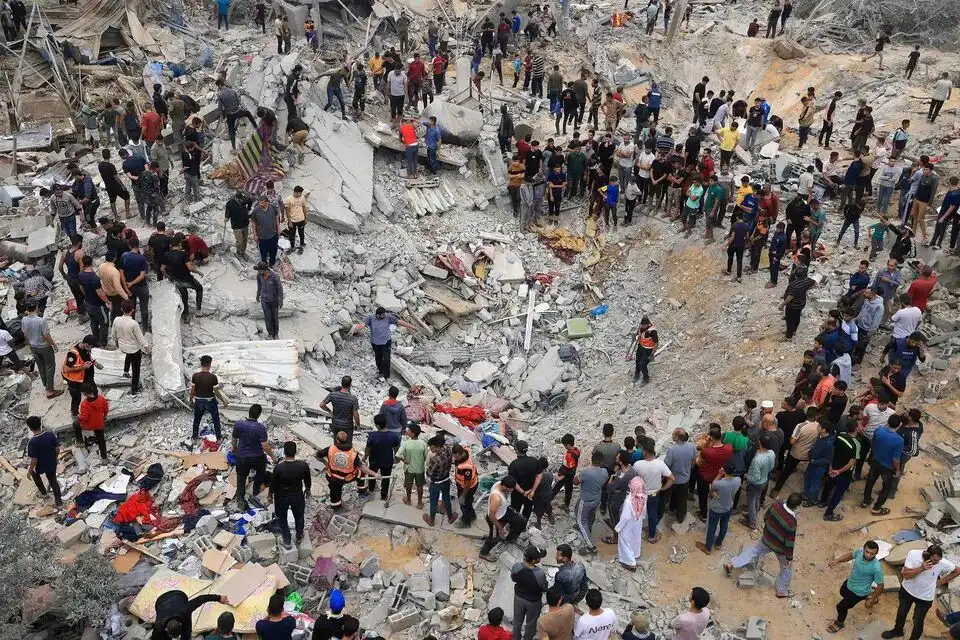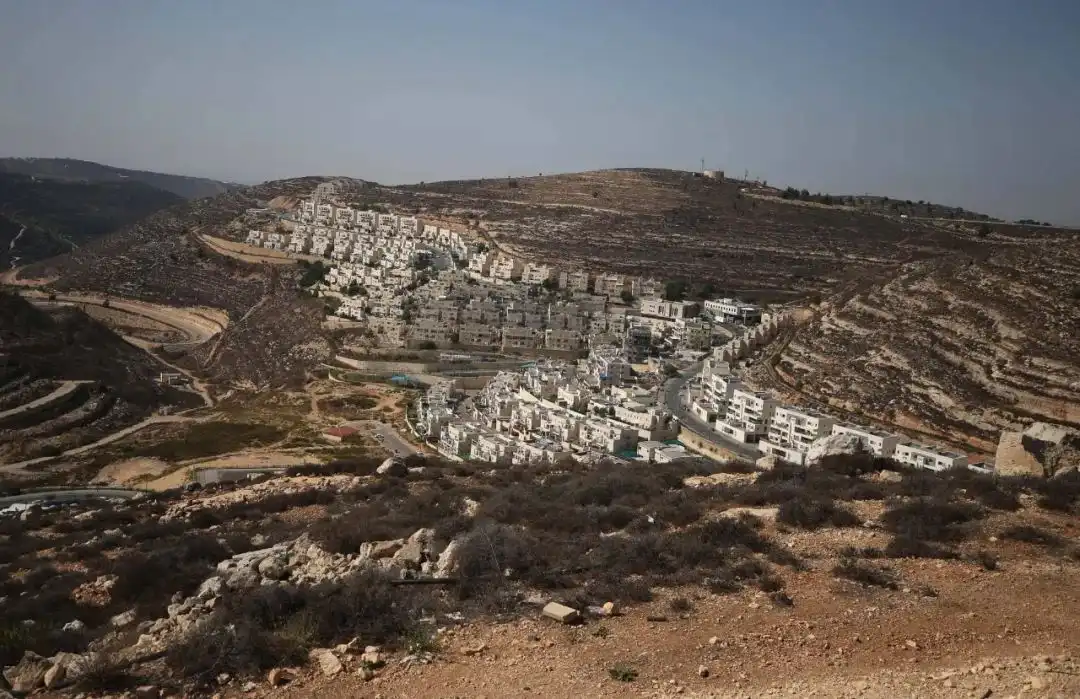Hamas 'anger and despair:Emotional motivations for the Al-Aqsa flood operation

The conflict between Israel and Hamas has been going on for several months, and Hamas 'motives for launching the Al-Aqsa flood attack on October 7, 2023 are still worth analyzing. Although the Al-Aqsa Flood Operation and the Kazakhstan-Israeli conflict it triggered are different in scale, intensity and duration, this is not the first time Hamas has attacked Israel, and it is highly likely that it will not be the last. Therefore, analyzing the root causes of Hamas's behavior helps us understand the reasons for the cyclical outbreak of Palestinian-Israeli conflicts.
Through years of interaction with Israel, Hamas must know that any attack will be severely retaliated by Israel. The more casualties Hamas has inflicted on Israel, the more retaliation it will suffer. Many scholars describe the irrational confrontation of Hamas's attack on Israel as "eggs hitting stones". Observers are also used to analyzing the rational basis of Hamas's behavior from the perspectives of history and culture, regional geo-strategy, Hamas's political calculation, and so on. As the realism assumes, the actor is a single and rational "economic man", and the external behavior is the decision that can best realize the maximization of self-interest after careful cost-benefit calculation. For example, although Hamas's attack will lead to terrible retaliation from Israel and tens of thousands of people will suffer casualties, Hamas will achieve local and short-term political victories, such as obstructing peace talks between Israel and Saudi Arabia and other Arab countries. deterring Israel, raising prestige among the people and other strategic goals. Even so, Hamas's practice of hurting 800 enemies and damaging itself still makes people feel irrational, and the emotional theory in international relations can make up for this deficiency and supplement realistic assumptions and explanations.
Theory of emotion in international relations
Emotional factors are so common in international relations that some scholars believe that international relations are the subject most closely related to emotion. To give a simple example, the "History of the Peloponnesian War" analyzes the reason why Athens and Sparta went to war was that the growing strength of Athens and its allies brought insecurity to Sparta. Insecurity is a strong emotional factor. Traditional theories of international relations research usually strive to exclude the emotional factors of actors, list them as irrational factors, exclude them from the framework of rational choice, and oppose them to rationality.
Around 2000, there was also an "emotional turn" in the academic community of international relations. It no longer believed that emotions were only a negative factor that affected the thinking of decision makers, misled decision makers, and was not conducive to decision makers making correct decisions. Instead, they could be used in individuals, countries and international systems. Important behavioral motivations that can play a role at all three levels of intention. Emotions can influence the decisions of key decision makers, shape a country's social form and political system, and impact the international system. Moreover, emotion-induced behaviors can interact at three levels. For example, individual emotions can rise to collective emotions and national emotions through social interaction and other means. National emotional tendencies can form new international norms. Emotional resonance may regionalize local events. Even internationalized, many major international events often occur under the influence of emotions.

Hamas Politburo leader Ismail Haniyeh meets with Iran's Supreme Leader Ayatollah Ali Khamenei
Regarding the relationship between emotion and reason, more and more research believes that emotion is an indispensable positive factor for reason to play its role. Especially on the surface of neuroscience research, emotion and reason are not opposed, emotion is a part of reason, and an actor lacking emotion cannot make rational decisions. In addition, scholars also pay attention to how emotions affect diplomatic decision-making, which in turn affect the occurrence of international political events and changes in state relations, how to affect the occurrence, escalation and end of conflicts, how to shape international norms, how to shape identity, etc., and explore the rational role of emotions in international relations, and the emergence of meso-and micro-emotion theories such as Emotional Choice Theory, Emotional Diplomacy Theory, and Emotional Effectiveness Theory. In short, the recent theory of emotions in international relations shows that whether it is positive emotions such as trust, pride, and national self-esteem, or negative emotions such as anger, revenge, and despair, they can shape the behavior of actors and become the direct motivation of actors 'behavior.
The emotions behind Hamas 'actions: anger and despair
Compared with the rest of the world, the post-World War II Middle East is full of war and violence. As a result, the emotions inspired by war in this land are more distinct and abundant than in other regions. For example, public disappointment with the government led to upheaval in the Middle East in 2011; deep insecurity in Saudi Arabia led to confrontation with Iran and severing diplomatic relations with Qatar; and the "betrayal" of more and more Arab countries to the Palestinian cause made the Palestinians despair. Israel's continuous forced entry into the Al-Aqsa Mosque has accumulated the anger of the Palestinian people, and the day-to-day trampling of Palestinian lives by the Israeli occupiers in the West Bank has always ignited the desire of the Palestinians for revenge. In the face of Israeli force, the Palestinians have no human dignity, let alone dignity to live a decent life, and the inhuman treatment suffered by the Palestinian people and holy places continues to resonate in the Islamic world and Muslims, and so on. It is the strong emotions of anger, despair, vengeance and dignity that have prompted Hamas to attack Israel again and again, even though it knows it has to pay dozens of times the price each time.
Hamas 'anger. 政治愤怒无时无刻不在塑造着巴勒斯坦民众的心理和哈马斯的行为。哈马斯愤怒的根源在于以色列对巴勒斯坦土地日复一日的侵占,对巴勒斯坦平民司空见惯的压迫。阿克萨洪水行动袭击发生后,以色列和西方的叙述是哈马斯又一次无端实施恐怖行为,攻击以色列这个和平的民主国家。阿克萨洪水行动脱离了巴以军事和政治冲突的历史背景,成为一次无理的恐怖袭击。但正如联合国秘书长古特雷斯于10月24日在安理会高级别会议所言,哈马斯的袭击并不是凭空发生的。

Operation Aqsa Floods did not happen out of thin air
In the long run, every Hamas attack is the cumulative result of Israel's constant rejection of United Nations resolutions and undermining the Israeli-Palestinian peace process. Take the construction of the separation wall as an example. Since 2002, Israel has built more than 700 km of the separation wall in the Palestinian territories. The wall should have been built along the 315 km Green Line stipulated in the 1947 United Nations zoning plan, but the Israeli authorities gradually introduced it into Palestinian territory and isolated some Palestinian towns. The Al-Aqsa flood campaign was caused by Hamas repeatedly stimulated by Israel's far-right government over the past two years, especially the Netanyahu government's extreme policy of stepping up its occupation of the West Bank and East Jerusalem in 2023. The current Israeli government led by Netanyahu was established in December 2022. It is composed of six far-right political parties, including the Likud Group, the Shas Party, the ultra-Orthodox United Tora Judaism Party, the Nome Party, the religious Zionist Party and the Jewish Power Party. Religious parties have fully returned to Israeli politics. Western, Arab and Israeli media have described Netanyahu as "the most extreme government in Israeli history."
Israeli Security Minister Ben-Gwier is a typical right-wing extremist. Before becoming security minister, as the leader of the far-right Jewish Power Party, Ben-Gweil had entered the Temple Mount many times as a member of parliament. In January 2023, he entered the disputed area for the first time as the government's newly established Minister of National Security. In May 2023, he again entered the Temple Mount in the Old City of Jerusalem accompanied by police. Faced with this development, the Israeli opposition party has warned more than once that the extreme right will bring Israel into a dangerous situation. Since the establishment of the Netanyahu government, the situation in the West Bank, East Jerusalem and Gaza has continued to escalate, with the Israeli occupying forces committing records in killing Palestinians, desecrating Islamic holy sites, attacking Muslim women and promoting settlement construction.
Since the beginning of 2021, 160 wells and other water sources in Palestinian areas have been destroyed and filled. According to data from the Palestinian Ministry of Health, since the beginning of 2023 alone, Israeli occupying forces have killed more than 220 Palestinians in the West Bank, Jerusalem and Gaza, including approximately 40 children and 11 women. In a report released in August 2023, a human rights watch group stated that "the Israeli army and border police killed Palestinian children without any effective means of accountability." Israel has also wantonly searched for what it considers "terrorists" and arbitrarily deprived Palestinians of their personal freedom. According to official Palestinian data, the Israeli occupation authorities have issued more than 2600 administrative detention orders (arrests without charge or trial) since the beginning of 2023, bringing the number of Palestinian prisoners in occupation prisons to 5200, including 36 female prisoners and about 170 children, in addition to 54 house arrest orders. From the beginning of 2023 to the end of September, approximately 41000 Israeli settlers attacked the Al-Aqsa Mosque.
The above are all before the outbreak of the Al-Aqsa flood attack. Therefore, for observers who continue to pay attention to the Palestinian-Israeli issue, the attack on October 7 was not sudden. As Wu Bingbing, an expert on Middle East issues at Peking University, said, the aggressive pressure of Israel's far-right forces will intensify the Palestinian-Israeli conflict. Rather than saying that the Al-Aqsa Flood was an unwarranted provocation by Hamas against Israel, it was a boomerang issued by the extremist Israeli government that hit itself. Hamas's extreme emotions and behaviors and the extreme right-wing emotions and behaviors within Israel are twin brothers, accompanying and interdependent.
The despair of the Palestinians. 巴勒斯坦人的绝望感来自于两个方面。其一,从内部而言,无论是约旦河西岸还是加沙地区的巴勒斯坦人都无法过上有尊严的生活。加沙自2007年以来就受到以色列海、陆、空全方面封锁,几乎完全剥夺了与外界的联系。加沙经常断水断电,居民生活主要依赖国际援助,进出加沙需要获得以色列军队的许可,而以色列极少发放许可证,加沙因此被称为“露天监狱”。在这种情况下,与世隔绝的加沙人民,特别是年轻人,变得越来越激进,大多数人认为他们已经没有什么可失去的了。约旦河西岸的状况并不会好多少,这里贫困率达到36%,失业率达到26%。西岸居民的行动自由也极其有限,完全依赖于获得以色列当局的许可。巴勒斯坦人(包括上学的儿童)每天都要费力地通过以色列人的检查站。

Young people in Palestine are becoming increasingly radical
In addition, Palestinian internal affairs have gradually reached a deadlock. Palestine has not held elections since 2006. The Palestinian Authority, as the legitimate representative of the Palestinian people, has become almost an empty shell without real power, and the people are increasingly disappointed with the Palestinian institutions. After the Al-Aqsa floods, Palestinians in the West Bank did not complain about the Israeli retaliation brought to them. Instead, they expressed their support for Hamas through demonstrations and other activities. After repeated failures in Palestinian-Israeli negotiations, Palestinians no longer believe in political solutions or peace, and people no longer have any expectations for political negotiations by the Palestinian National Authority. Since 2023,"lone wolf" attacks driven by desperation have risen again, such as in late August, when a Palestinian driver attacked a group of Israeli soldiers as he was preparing to pass a checkpoint. It was this same despair that drove a section of Palestinians to unite in support of Hamas 'attacks.
Second, from the outside, the sense of despair of the Palestinians also stems from the continued decline in other Arab countries' attention to the Palestinian cause. Trump promoted the "Abraham Agreement" in the Middle East, and Arab countries such as the United Arab Emirates, Bahrain, Morocco and Sudan have normalized relations with Israel, the Saudi crown prince said in an interview with Fox Television of the United States. relations with Israel are getting closer. Proximity to the Israelis means to a large extent that there is no hope of establishing Palestine. Israel's policy goal is to promote more and more Arab countries to remain detached or neutral on the Palestinian issue by developing relations with Arab countries, isolating Palestine while extricating themselves from isolation. The essence of the "Abraham Agreement" is to abandon the "two-State solution", the Palestinians feel that they are about to be completely abandoned, and the so-called Palestinian issue is being "marginalized". Coupled with the aggressive posture of Israel's far-right forces over the past two years, more and more Palestinian youth are becoming more desperate about the peace process. Hamas has used the anger and despair that hangs over the Palestinians to attack Israel and establish itself as the "true defender" of the Palestinian cause. Hamas named the attack the Al-Aqsa flood, which also shows the flood of discontent among the Palestinian people.
Israel's violence cannot bring peace to it.
As the Israeli army advances on a large scale in the Gaza Strip, observers are concerned about how far Israel will advance and whether the Gaza conflict will overflow inside and outside the region and escalate into a regional conflict. In any case, one thing is certain that Israel's violence in Gaza will not bring peace to Israel in the future. The seeds of hatred have been deeply rooted in the hearts of the Palestinian people, especially children and young people. The desire for revenge will accompany their childhood and youth. Children who grow up in this environment seem to have no other way out except to join Hamas and carry out "terrorist acts." Israel seems to be destroying Hamas, but it is actually creating more Hamas. Israel's indiscriminate attacks on civilians is the best mobilization order for ordinary Gazans to join Hamas. From the perspective of emotion theory, how to achieve peace means how to replace negative emotions with positive emotions, and how to replace anger, revenge and despair with emotions such as trust, hope and friendliness. Obviously, the negative interaction of tit for tat and eye for eye between the two sides will only deepen the negative feelings again and again and become the trigger for the next conflict.

Israel expands settlements
If what Israel wants is land, there is no doubt that its policies over the past 75 years have been effective. Whether it is occupying large areas of land at a time through war, or through settlement construction, where house by house quietly encroaching on Palestinian land, Israel's "territory" is indeed expanding. Including this Gaza War, one of Israel's war goals is likely to be to control northern Gaza and further reduce the living space of Hamas and Gaza Palestinians. At the same time, Israel has not stopped annexing Palestinian land in the West Bank, but has stepped up efforts to expel Palestinians in the name of fighting terrorists. If what Israelis want is peace, violence will never bring peace to Israelis. It is clear that Israelis are now choosing to gain more land and so-called living space.
The emotions aroused by the Palestinian issue are not limited to the individual level of the Palestinian people. They affect not only Palestine and its surrounding countries. The anger and despair generated by the Palestinian-Israeli issue are having an impact on the entire international pattern. The international community is taking sides with whether to "stand with Palestine" or "support Israel", and the entire international community is also being torn apart.
copyright notice:This article was published in the 3rd issue of Military Digest in 2024. The author: Ma Xiaodong, if you need to reprint it, please be sure to indicate "Transferred from Military Digest".
attention to our

